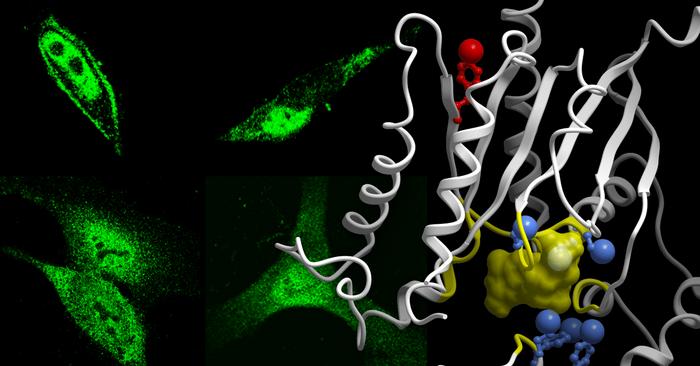SHEA Backs Essential Federal Advisory Committees
The Society for Healthcare Epidemiology of America (SHEA) is drawing attention to a critical issue concerning the future of public health policies in the United States. With the appointment of Robert F. Kennedy Jr. as the new Secretary of the U.S. Department of Health and Human Services, SHEA is urging the immediate reinstatement of federal […]


The Society for Healthcare Epidemiology of America (SHEA) is drawing attention to a critical issue concerning the future of public health policies in the United States. With the appointment of Robert F. Kennedy Jr. as the new Secretary of the U.S. Department of Health and Human Services, SHEA is urging the immediate reinstatement of federal advisory committees, which play a vital role in navigating the complexities of health-related challenges. This call to action is rooted in the belief that a transparent and inclusive advisory process is essential for the formulation of effective health policy.
The role of federal advisory committees is enshrined in the Federal Advisory Committees Act, which establishes the framework for these groups to engage various stakeholders, including the public. These committees have historically served as important forums for deliberating urgent health issues, particularly as new scientific evidence emerges. By reconvening these committees, the Department of Health and Human Services can enhance its decision-making processes by incorporating a diverse range of perspectives from experts and community members alike.
Advisory bodies such as the Healthcare Infection Control Practices Advisory Committee (HICPAC), the Presidential Advisory Council on Combating Antibiotic-Resistant Bacteria (PACCARB), and the Advisory Committee on Immunization Practices (ACIP) are pivotal players in the health landscape. They are tasked with reviewing and recommending best practices in infection control, antibiotic use, and vaccination, respectively. The recent suspension of their meetings has raised alarms about the potential implications for public health, particularly as we face various infectious disease threats.
Public engagement through advisory committee meetings is not merely a formality; it fosters accountability and transparency in federal health guidelines. When experts and citizens can come together to discuss pressing health issues, it leads to a more informed population and, ultimately, better health outcomes. The absence of these public forums could erode public trust in health agencies at a time when confidence in health systems is paramount.
The expertise offered by committee members is another significant factor. Many individuals serving on these committees have extensive backgrounds in healthcare delivery, epidemiology, and public health policy. Their insights are crucial for developing standards that are not only scientifically sound but also widely accepted by the medical community and the public. The cancellation of recent meetings and the expiration of committee charters undermines the wealth of knowledge these individuals bring to the table.
SHEA’s concern centers around the potential for a gridlock in the advancement of infection prevention and control standards without the guidance provided by these advisory entities. Infection prevention is increasingly regarded as a top priority for healthcare settings, especially in light of recent challenges posed by multi-drug resistant organisms and other infectious threats. The societal costs of failing to address these issues through evidence-based guidelines could be astronomical, impacting not just patients but the healthcare system as a whole.
Furthermore, vaccination practices have come under significant scrutiny recently, heightened by misinformation campaigns that question vaccine safety and efficacy. ACIP’s role in immunization practices becomes paramount in reinstating public confidence in vaccines and their crucial role in public health. Without regular updates and guidance from committees, misinformation could proliferate, leading to vaccine hesitancy and reduced immunization rates.
SHEA emphasizes that public health agencies must prioritize a transparent dialogue with the public and professional organizations. Such engagement not only cultivates trust but also ensures that health policies are rooted in the latest evidence and best practices. The reinstatement and reactivation of these vital advisory committees would represent a significant step towards reinforcing this dialogue and fostering a collaborative approach to public health issues.
Moreover, SHEA recognizes the value of having diverse voices in these discussions. The ongoing challenges we face in healthcare require multidisciplinary approaches, and inviting experts from various fields can enrich the deliberative processes. In the realm of infectious diseases, for example, input from microbiologists, public health officials, and patient safety advocates can lead to more holistic and effective solutions.
The future of healthcare in the United States largely relies on a robust, transparent, and inclusive approach to policy formulation. The call by SHEA to reinstate federal advisory committees is not just about maintaining tradition; it is about ensuring that the best available evidence informs decisions that impact the health of the entire population. As the nation navigates an increasingly complex health landscape, the need for informed guidance from experts cannot be overstated.
As we look forward, it is essential that the incoming administration recognizes the significance of these advisory bodies. They serve not merely as regulatory mechanisms but as essential platforms for collaborative discourse that ultimately drives quality improvement in healthcare. Re-establishing these committees sends a clear message about a commitment to science, transparency, and public accountability.
In summary, SHEA’s advocacy for the reinstatement of federal advisory committees is a clarion call to prioritize public health and safety. It reinforces the notion that good health policies are built on collaboration, expert input, and open dialogue. As the public grapples with critical health issues, ensuring that there is a robust mechanism for deliberation and guidance is paramount for the well-being of all Americans.
Subject of Research: Federal Advisory Committees and Public Health Policy
Article Title: SHEA Calls for Reinstatement of Federal Advisory Committees for Public Health
News Publication Date: [Insert Date]
Web References: [Insert relevant URLs]
References: [Insert relevant citations]
Image Credits: [Insert credits if available]
Keywords: Public Health, Federal Advisory Committees, SHEA, Healthcare Policy, Infection Control, Vaccine Safety, Antibiotic Resistance, Public Trust, Health Guidelines, Evidence-based Practices.
Tags: community involvement in health advisoriesFederal Advisory Committees Acthealth-related challenges in Americahealthcare epidemiology in the U.S.importance of health advisory bodiespublic health policy advocacyRobert F. Kennedy Jr. appointmentrole of HICPAC and PACCARBscientific evidence in public healthSHEA federal advisory committeesstakeholder engagement in health policytransparency in health decision-making
What's Your Reaction?

































